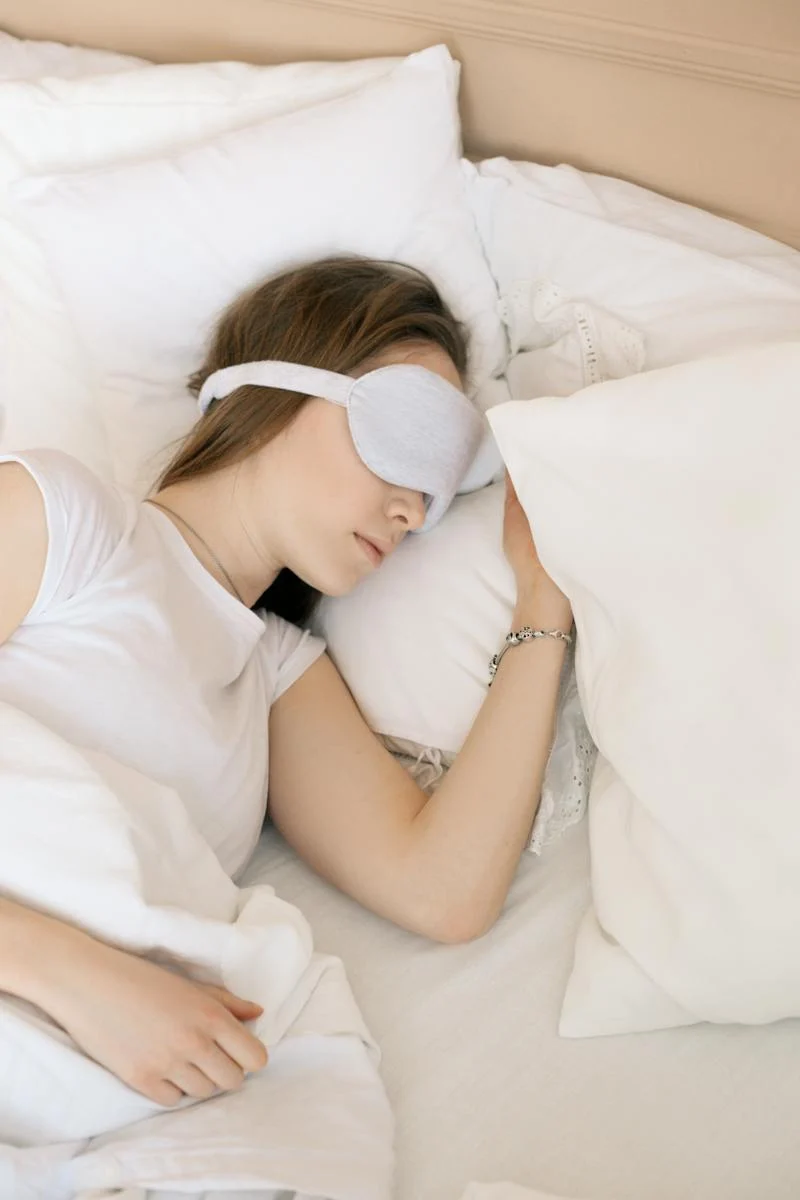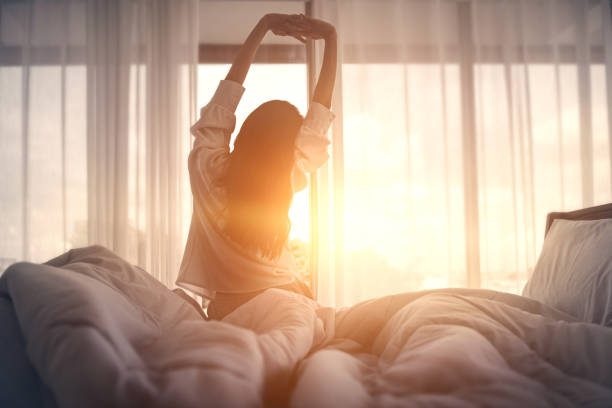I encourage patients to adapt a regular sleep hygiene habits to establish good sleep rhythms, even if they get to sleep pretty well. This can include several aspects:
– Be mindful of your screen time. Electronic devices are thought to activate parts of the brain that stimulate the mind, instead of calming it down.
– Turn off the news – I think this is a good habit anyway – but turn off overstimulating or negative stimuli before bed
– Make sure your room is dark. When ever I suggest this, everyone tells me that their room is dark – maybe so. Ideally I want the room dark- so dark that it would be hard to walk across the room. Of course I don’t want patients to fall, so I suggest a sleep mask which can block out light from clocks, nightlights, or streetlights outside, and help the brain settle down
– Find the temperature you like. Generally people find a cooler room easier to sleep in, but find your preference. Try to find a peaceful arrangement with your significant other if needed to reach balance.
– Are the mattress and pillows comfortable? If not make a change if you can, especially with pillows, but a better fitting mattress can help with sleep and pain.
– Use a sound machine of some kind. There are apps for your phone for white noise, there are machines that can be used for white noise as well. Having used one for years, I think it has trained my ears to the point that body hears it and knows that it is time to go to sleep
– Lesson if not eliminate the EMFs from the bedroom. EMFs or electromagnetic frequencies come from WiFi, cell phones, and tablets and may interfere with sleep quality. More to come on EMFs in other discussions, but I worry about their disruption on the brain – even if the disruption is small why take the chance. I don’t like the cell phone by the head of the bed – move it as far away from the head of the bed as you can. Consider putting it on airplane mode if it needs to be in the bedroom. I typically suggest to turn WiFi off at night as well – it is typically a little button on the router that I then just turn on in the morning. It takes just a couple of minutes to boot back up again.
– Other options can include using essential oils such as lavender to promote calmness and sleepy time as well.
– My two other favorite ideas are to read before bed – ideally a real book – this always puts me to sleep. And to do a breathing exercise – of which there are many but I like to breathe in for a count of 5 and exhale for a count of at least 6 if not longer. I do this for 2-3 minutes. It is extremely simple and very helpful.

